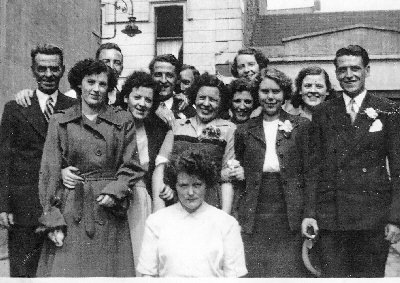Perhaps the principal extant repository of our ancient Gaelic language in everyday use among the majority of citizens is our wealth of local place names. It is important to continue to use them, especially in addressing envelopes, where they can precede the modern post codes. Drumcashellone [Eoin’s rocky hill fort] Greenan [sunny place] Meigh [plain] and so on.
The derivation is centuries – sometimes millennia old, and often disputed. The following list is neither comprehensive [in fact, just a random few, to begin with] nor undisputed and is offered for advice only. Be aware that alternative possibilities, usually just as valid, exist. Most people are happy to have one explanation to cling onto.
Drumsallagh – Mucky hill, or Hill of the Herds
Edenderry – Slope of dark trees
Coolnacrann – Remote spot of the trees
Meenan – Mossy place
Ballinskeagh – Place of hawthorns
Scarva – Watershed
Creevy – Bushy place
Derrybeg – Small oak wood
Ballyvarley – Place of the slaughter
Aghaderg Red [bloody] field [ Battle of Aghaderg c.350]
Loughbrickland Lake at Bricriu’s place
Lisnabrague – Fort of the games
Legananny – Stone of the Assembly
Lisnagead – Fort of the Hundred [from Conn of the 100 Battles]
Shankill – Old Church
Ballinteggart – Priest’s townland
We will concentrate next on place names of Creggan parish. First, by way of light distraction, a related story. You know of course, that mor and beag are big and small; coill is church and fir and mna, men and women respectively. So Kilmore derives from big church, and Kilnaman from church of the women. Keep this in mind for a moment.
It had been a long, hard winter and Tommy Donaghy, living in the townland of Kilnaman at the foot of the mountain, hadn’t seen his oul uncle Bertie from across the valley in Kilmore for some ten weeks. Bertie lived alone and wasn’t as fit to look after himself as he once was.
Tommy woke up one fine April morning and decided he’d go ceili-ing. He pulled on his clothes, his winter woollies, his heavy boots and socks, his overcoat and muffler and thick gloves and eventually he was ready to step out onto the street. It was early morning so Tommy knew he had time and enough to get there and back before dark.
He hadn’t reached the crossroads below before he was stopped in his tracks by a group of men wearing khaki uniform and talking with strange accents. Their leader raised his hand to stop Tommy.
‘Excuse me, Paddy,’ he said, for he must have mistook him for some one else, ‘But do you mind telling me where you have just come from?’
Tommy didn’t want to correct him on the name, for he thought that’d be impolite, him being a stranger and all to these parts. He smiled,
‘Sure I don’t mind at all, at all, and thank you for asking.’ He smiled again. ‘Sure I’m after coming from Kilnaman!’ Tommy concluded triumphantly.
Yer man looked at him askance. Then he called all his friends to gather round. ‘Wait till yous hear this one, fellas,’ he roared. ‘Could you tell us once more where you have just come from, Sir?’
‘No, no, no. Not Sir, at all, at all. Just plain Tommy.’ Then he remembered, ‘Or you can call me Paddy, if you like!’
‘And of course. Sure I’m just coming from Kilnaman.’
‘I’ll bet ye are! And could you tell us where you are going now?’
‘I cud surely! Sure I’m just going to Kilmore!’
The last we heard, they took Tommy off to a place called Maghaberry, where he’s living in something called an aitchblock, whatever that might be!
Photo: c.1932 Frank McCullagh, his mother Bridget, Mrs Jones, his sister Dolly – Monaghan Street
